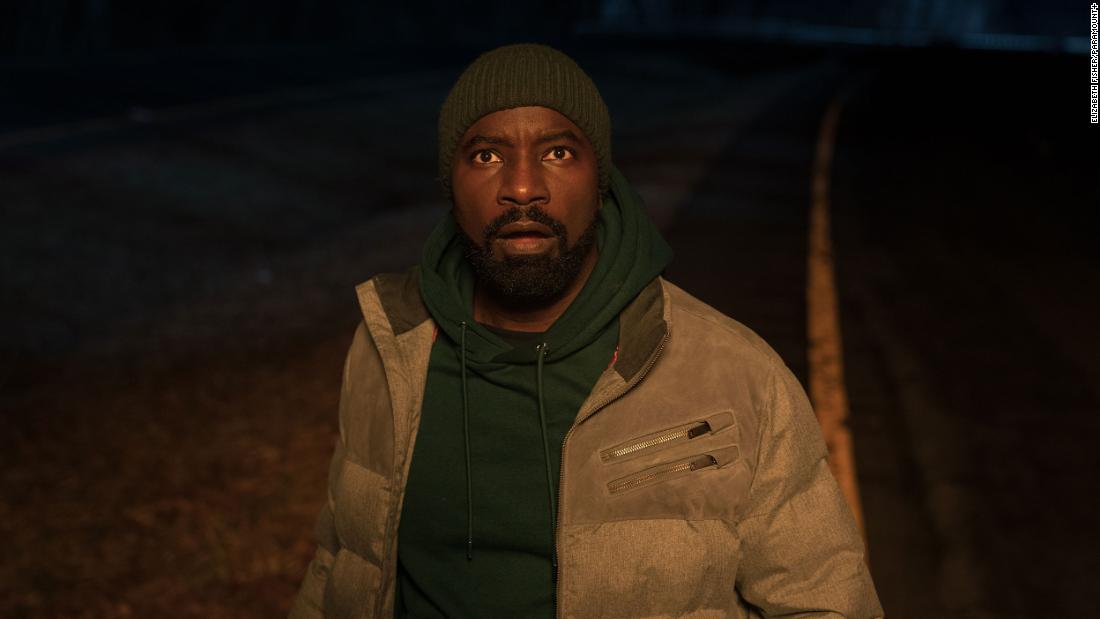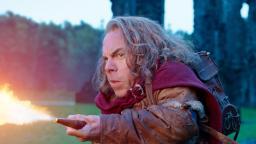This TV sequence delivers us from three demons haunting America
 This TV sequence delivers us from three demons haunting America
[ad_1]
This TV sequence delivers us from three demons haunting America
[ad_1]
Scenes in motion pictures and TV that when impressed terror — cackling demons possessing the physique of a younger lady, darkish prophecies concerning the quantity 666, preachers warning terrified congregations about "the daddy of lies" — now appear passé.
The fashionable procedural, which has been described as "'X-Information' meets 'The Exorcist,'" follows the adventures of David (Mike Colter), a Roman Catholic priest who groups up with Kristen (Katja Herbers), a skeptic-turned scientific psychologist, and Ben (Aasif Mandvi), a tech-savvy atheist, to analyze mysterious occasions on behalf of the Catholic Church. Their mission is to debunk or validate alleged miracles, demonic possessions and different unexplained phenomena.
"Evil," although, is greater than ghoulish leisure. In 3 ways, it additionally provides an unlikely deliverance from a few of the most scary divisions splitting America.
It exhibits we do not must be possessed by politics
It is one type of modern-day possession you could't summon a priest to battle.
A pal or relative goes down a political rabbit gap. They develop into consumed with political conspiracy theories. They obsessively watch cable information. You'll be able to't speak about politics or faith with them anymore, since you do not acknowledge the individual you as soon as knew.
When trendy politics will get lowered to a battle between good and evil, it is exhausting to seek out examples of people that aren't divided by their variations.
Not so in "Evil." The present's three foremost characters are separated by race, tradition and spiritual beliefs. And but they deeply respect, take heed to and help each other. They alter one another's minds. They make one another snigger. The heat of their friendships is likely one of the pillars of the present.
In a single pivotal scene in "Evil's" third season, David, the Catholic priest, takes the skeptic psychologist Kristen apart to restore a rift.
"I do know you do not imagine in God, however I do," he tells her. "And that requires an motion that's past what we've... when God calls for one thing of me, I've to obey."
"I want I understood," she says, close to tears.
David assures her that she would not have to know or undertake his religion. What issues is that she is aware of how a lot he cares for her, regardless of their variations.
In at the moment's polarized cultural local weather, that scene may qualify as a miracle.
In a sly means, the present provides an alternate mannequin of how folks in modern America can stay shut even once they disagree.
"That was deliberate," says Robert King, a part of the husband-and-wife crew that created and produces "Evil." (Robert and his spouse, Michelle King, are also the creators of two different acclaimed sequence: "The Good Spouse" and "The Good Combat.")
Michelle is the kid of Holocaust survivors. She believes science and psychology provide solutions to what some name evil.
Her husband has completely different beliefs.
"I come from a Catholic household," says Robert King, who says he believes in private evil and demons. "I do imagine the world is beneath the umbrella of unique sin."
Their sequence can also be a mirrored image of the couple's relationship. Robert is a Roman Catholic and Michelle is a secular Jew. Throughout their three a long time of marriage, they've debated most of the points which are explored within the present.
"We wished to point out that folks can have completely different level of views about religion and will nonetheless have significant dialogue," Robert King says.
In an period of absolutes, it embraces ambivalence
There was a time when the rise of the web was greeted with optimism. Commercials rhapsodized concerning the "international village." Advocates stated it could convey the world nearer. That perception now appears as outdated because the traditional horror movie, "The Creature from the Black Lagoon."
There's a rising recognition that social media can erode folks's psychological well being and poses a menace to democracy. The rise of the web has even solidified the rule of dictators via what some name "digital authoritarianism."
A part of what makes "Evil" so efficient is that it fuses conventional horror components with the modern evils lurking on-line.
In a single episode, a priest is assumed to have been possessed. However the true wrongdoer is a web-based playing habit.
In one other, two younger boys are terrorized by an entity that stalks them at night time. However the evil supply seems to be somebody who desires to boost their profile on a social platform that is a thinly disguised model of TikTok.
The present takes on different trendy horrors: gun violence, racism, and the worry -- heightened by the overturning of Roe v. Wade -- that girls are not answerable for their our bodies.
It does this by tucking its messages into chilling and unpredictable storylines. It makes room for the existence of private evil. The present additionally embraces ambivalence: Some seemingly supernatural occasions end up to have rational explanations, whereas others are left open-ended.
He says the present displays at the moment's political local weather, during which folks typically disagree about fundamental information. Some say the 2020 presidential election was stolen; others do not. Some imagine the fetus has a soul; others do not. Some imagine the information is faux; others do not.
The present affirms each believers and non-believers, he says.
"It is made ambivalence a mode of leisure," he says. "That is the great thing about leisure. It is a fantastic strategy to interject these questions, and the (viewers) can give it some thought independently at dwelling."
It depicts organized faith as a drive for good, not simply division
"Each hero turns into a bore ultimately."
That quote from Nineteenth-century thinker Ralph Waldo Emerson displays a truism concerning the horror style: Persons are extra fascinated by villains than heroes. Horror franchises, just like the "Alien," "Predator," "Halloween" and Hannibal Lecter franchises, are constructed round villains. Many actors say they'd reasonably play villains than heroes.
These attempting to painting goodness in a present about religion additionally face one other problem: Rising mistrust of organized faith. The clergy intercourse scandal within the Roman Catholic Church, the expansion of White Christian nationalism and church schisms over such points as racism and abortion have turned many Individuals off from organized faith.
However "Evil" does one thing daring. It portrays institutional faith as a drive for good. Its hero is a religious Catholic priest, and it largely portrays members of the Catholic Church nearly as good, well-intentioned folks.
"The present shouldn't be merely concerning the supernatural -- it presents hope," Foust instructed Muricas News. "It exhibits that materials issues do not fulfill. That is why I feel folks on the planet are so discouraged. It [the show] makes us consider issues that do fulfill."
One critic believes the present's portrayal of David, may assist enhance the picture of Catholic leaders.
The sequence additionally makes goodness compelling via the character of Sister Andrea, a tiny, nondescript nun who is commonly seen carrying a brush. But she's additionally the present's religious powerhouse, an individual whose incandescent religion makes demons shudder.
Sister Andrea may have been portrayed in a sanctimonious means, however she is likely one of the most humorous and likeable characters on the present.
Michelle King credit the character's appeal to the actress who performs her, Andrea Martin.
Neither can "Evil," at the least thus far. The present has been renewed for a fourth season.
It is becoming that the present airs on Sunday nights. It provides one thing for many who imagine humanity stays, as Robert King says, "beneath the umbrella of unique sin." It additionally provides one thing for many who are extra involved concerning the horrors of the modern world.
When a TV present can communicate to so many individuals at such a divided time in our historical past and illustrate how we are able to disagree with out changing into mortal enemies, that is not evil. That is good.
[ad_2]







0 comments: